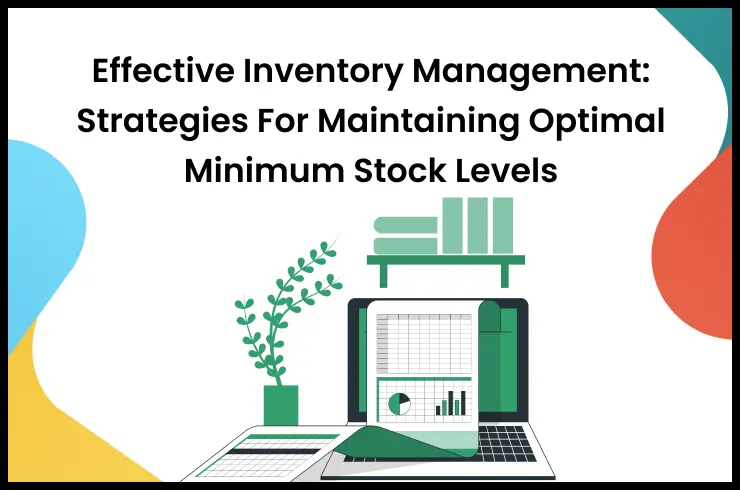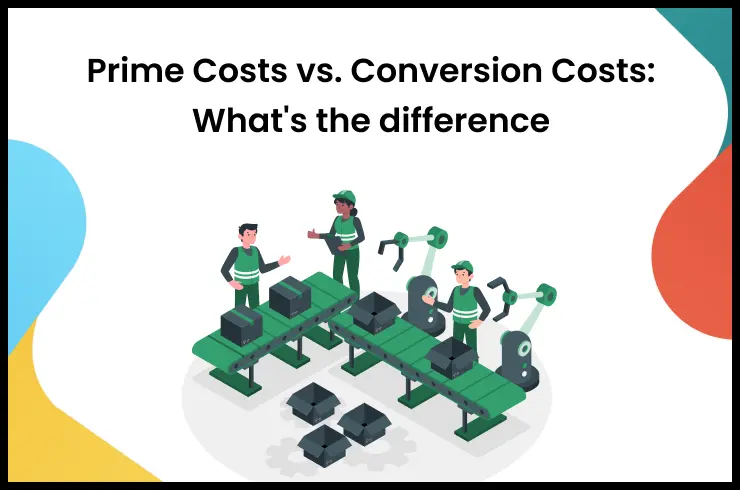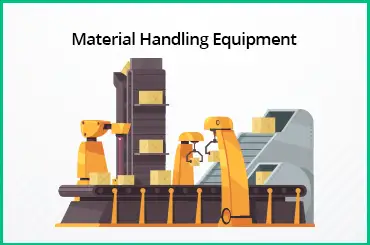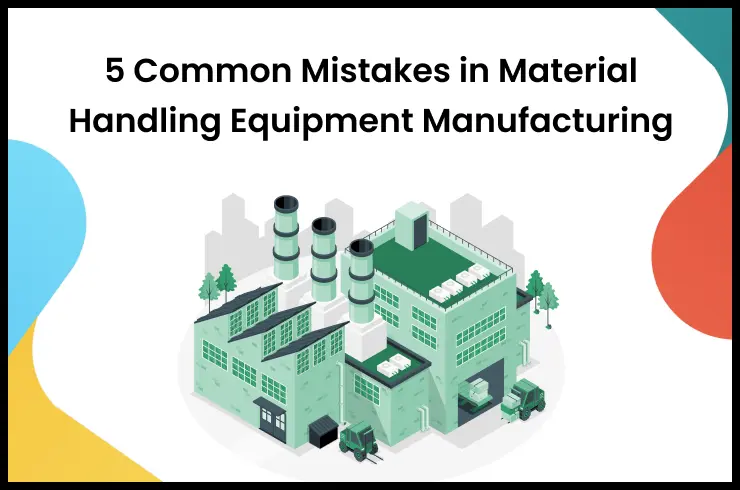India is on the way to becoming the world's manufacturing hub soon. Government initiatives like Atmanirbhar Bharat have inspired many people to start small scale manufacturing businesses in India. You can also start a small manufacturing business in India and contribute to the country’s growth.
However, errors in operations like inventory management, purchase management, and limited budgets are some challenges that might stop you. You must also overcome a lack of skilled workforce, wastage of time and resources, and compliance with industry rules to run a successful manufacturing business.
In this blog post, we will learn how to start a small scale manufacturing business in India and how to make it successful based on your requirements and goals.
What Is Small Scale Manufacturing?
Small scale manufacturing is the production of goods within a limited budget and is mainly focused on local demand. An SME manufacturer tries to use lesser resources and make products in limited quantities. They need to change their strategies according to the market trends to manufacture the right products in the right quantities within a limited budget.
Large-scale manufacturing companies manufacture finished goods in bulk quantities. They also keep safety stocks of many products because they work with multiple stakeholders who invest a lot of money in the business. They can use data analytics, automation, robotics, and other technologies to improve their manufacturing processes.
Many software solutions are also available to use in a low scale manufacturing business to automate processes and increase efficiency. Many small scale manufacturing industries use different types of tools to automate and improve operations, such as inventory management, production planning, and quality control.
Some of the top manufacturing small scale industries in India are involved in making automotive parts, jewellery, candles, clothes, plastic and paper items, oils and soaps, and toys.
Read 25 Manufacturing Business Ideas in India to get ideas for starting a small scale manufacturing business in India:.
Importance Of Small-Scale Manufacturing Business In The Economy
Small-scale manufacturing businesses support the growth of local places, local people, and the country’s economy. Here are some importance of small scale industries manufacturing units in the economy growth.
- Employment: Small-scale manufacturing businesses provide employment to the local people, and even to those who have low academic knowledge.
- Salaries Growth: The availability of many small-scale businesses increases the chance for workers to get higher salaries.
- Regional Growth: They contribute to the regional growth of the country and prevent migration of local people.
- Export Opportunities: When small-scale manufacturing businesses make high-quality products in large quantities, it provides the opportunity to export and earn higher profit margins.
- Balanced Prices: They utilise local resources and reduce the need to import products, which contributes to keeping prices balanced.
Benefits Of Small-Scale Manufacturing
Starting a small scale manufacturing business in India can fulfill your entrepreneurial goals and support the country’s growth. Let’s learn about the key benefits of small scale industries.
- Low Investment: You can start a small scale manufacturing business with low investments and even run it with less resources.
- Multiple Options: You have a wide range of options for choosing products for manufacturing, such as electrical items, printing and packaging products, household utensils, etc.
- Flexible Production: You can change your production rates in real time according to market trends and improve your demand management. You can do this without much disruption to overall business numbers.
- Job Creation: You can create many jobs for people with different types of skills.
- Development: It can help you support regional development and reduce the migration of the local people.
- Quick Decision-Making: Decision-making is quicker due to the smaller size of the organization. This flexibility helps businesses to react quickly to changes in customer demands.
- Better Customer Relations: With a smaller production scale, businesses can offer personalized services and build stronger relationships with their customers. This can lead to higher customer loyalty and a better understanding of customer preferences.
Challenges Of Small-Scale Manufacturing
You need to make a detailed plan by analyzing every aspect in advance to start a small manufacturing business in India. Here are some challenges of small scale industries that you need to overcome.
- Production Planning: It can be difficult to plan production based on your specific requirements due to minimum production quantity requirements.
- Resource Utilization: You can face problems in using your resources for maximum output, whether raw materials, labour, or machines.
- Regulatory Compliance: Regulations include a wide range of requirements, including safety standards, environmental laws, labour laws, taxation, and industry-specific certifications. This can be overwhelming, especially with limited resources and expertise.
- Technology Adoption: Many technological solutions are available on the market, and adopting the right technology for your specific requirements can be out of budget.
- Limited Finance: Limited credit history, lack of collateral, and tough lending criteria can make it challenging to obtain loans or investments needed for expansion, equipment upgrades, or working capital.
- Skilled Labor Shortage: The limited budget can restrict the ability to offer good wages or invest in training programs, leading to a gap in the necessary skills to operate efficiently.
Steps To Starting A Small-Scale Manufacturing Business
Here are the steps to starting a small scale manufacturing business in India.
- Market Research: Conduct market research to understand customer preferences and analyze competitors' strategies to get a competitive edge.
- Sourcing Capital: Secure funding through savings, loans, or investments. Plan for both initial setup costs and ongoing operational expenses.
- Product Selection: Choose products based on budget, production capabilities, and market demand, keeping in mind profitability and efficiency.
- Approvals: Get all necessary licenses, permits, and approvals, such as GST registration, to legally operate your business.
- Hiring: Recruit skilled labourers and employees who can efficiently operate machinery and manage production processes.
- Production Setup: Set up your manufacturing units based on specific production needs and optimize for efficiency and scalability.
- Supply Management: Use tools and real-time monitoring to improve communication and effectively manage supply chain activities.
Examples Of Successful Small-Scale Manufacturers
Small scale industries manufacturing products are related to automobiles, electrical equipment, chemicals, household items, and more. Let’s learn about some successful small scale manufacturing examples.
Revamp Moto: Revamp Moto has quickly established itself as a leading player in India's electric two-wheeler market, particularly focusing on micro-entrepreneurs and last-mile delivery solutions. The company raised over $1 million in a pre-seed funding round, which has played a huge role in advancing its product development and scaling operations. The company is projected to produce 50,000 vehicles annually, highlighting its significant impact on the Indian EV market(Ref: HT Auto, EMobility+).
Phool: Phool is a successful small-scale manufacturer that has turned the concept of flower recycling into a growing business. Founded in 2017, the company has raised over $9.4 million across multiple funding rounds and is backed by prominent investors like Alia Bhatt and Sixth Sense Ventures. Phool.co operates a unique circular economy model, converting floral waste from temples into high-quality incense sticks, organic fertilizers, and even a vegan leather alternative called "Fleather." The company has grown 130% year-over-year and now plays a significant role in the Indian fragrance and sustainable products market, preventing 13 tonnes of floral waste from polluting the Ganges River every day(Ref: Forbes India, StartupTalky, Business Insider).
Operational Aspects Of Small-Scale Manufacturing
It is important to manage all operational aspects of small scale manufacturing businesses to achieve your goals. You have to set your production targets by analyzing sales orders and market trends. You need to schedule work orders based on your strengths to achieve production targets on time. You also need to improve your inventory management to avoid disruption in production.
You have to monitor processes in real-time to reduce waste and manufacture products according to the required quality. When you follow all these operational aspects, you can run your small scale production business smoothly.
Start Your Small Scale Manufacturing Business With TranZact
TranZact is specially designed to support small scale manufacturing businesses in India. It is the easiest software made for Indian SME Manufacturers. Both Revamp Moto and Phhol use TranZact to take control of their business processes.
TranZact helps you digitize all steps from enquiry to dispatch. This could be inventory management, production planning and scheduling, or quality control. It offers solutions like inventory management software, production management software, and manufacturing shop floor control software in one platform to improve all processes.
You can implement TranZact in your business within 14 days with 24*7 chat support to solve your queries. Start and simplify your small scale manufacturing business in India with TranZact to run it with confidence.
FAQs
1. What is small-scale manufacturing?
Small scale manufacturing is the production of goods in small quantities by using limited resources, such as raw materials, workforce, or machinery.
2. What are some examples of successful small-scale manufacturing businesses in India?
Some of the examples of successful small-scale manufacturing businesses in India are:
- Revamp Moto
- Phool
- Taurus Packaging
- Mesco Springs
- Atomberg
3. What products are commonly manufactured by small-scale industries?
Products that are commonly manufactured by small-scale industries are as follows:
- Automotive Parts
- Clothes
- Water Bottles
- Cosmetics
- Handicrafts
- Candle Manufacturing
- Jewelry Making
- Textile Business
- Spice Production
- Paper Product Manufacturing
- Toys Manufacturing
4. How much investment is required to start a small-scale manufacturing business in India?
The required investment amount to start a small-scale manufacturing business in India can range from Rs 1 to 10 lakhs. The actual investment cost depends on what type of products you want to manufacture.
5. What government schemes and incentives support small-scale manufacturing businesses in India?
A few government schemes and incentives to support small-scale manufacturing businesses in India are as follows:
- MUDRA (Micro Units Development and Refinance Agency) Loan Scheme
- Production Linked Incentive (PLI) Scheme
- Raising and Accelerating MSME Performance (RAMP) Scheme
6. What are the essential steps to starting a small-scale manufacturing business in India?
The essential steps to start a small-scale manufacturing business in India are as follows:
- Market research to decide on what product
- A location to set up the factory
- A detailed business plan
- A license to comply with rules
- Hiring employees and workers
- Setting up machinery
- Defining the supply chain
- Monitoring performance and improving
7. What are the benefits of small-scale industries?
The benefits of small-scale industries are as follows:
- Low-Cost of Production
- Variety Of Products
- Creates Employment
- Prevents Migration Of Locals
- Opportunities For Entrepreneurs
8. What are the common challenges faced by small-scale industries?
The common challenges faced by small-scale industries are as follows:
- A Lack of Funds
- A Lack of Skilled Workforce
- Inefficient Use of Technology
- Supply Chain ManagementAdapting to Changes















